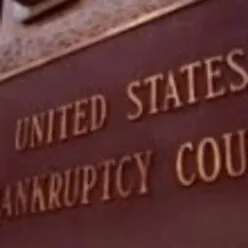As we all know, life is full of ups and downs, twists and turns, and occasionally, moments that make your heart skip a beat.
Financial Ups and Downs in Life with Bankruptcy
When it comes to the wild world of financial matters and adventure sports, there’s a surprising connection between bungee jumping and filing for bankruptcy. So, strap in and prepare to take the plunge, because we’re about to make a thrilling comparison.
First and foremost, both bungee jumping and bankruptcy require a certain degree of courage. It takes a brave soul to willingly dive headfirst off a bridge, tethered to a cord, just as it does to accept that your financial situation has reached a point where you must declare bankruptcy. But fear not! For both of these daring endeavors, there’s an element of liberation in facing the challenge head-on.
When you bungee jump, you’re putting your faith in the strength and reliability of the bungee cord to ensure a safe and exhilarating experience. Similarly, in the world of bankruptcy, you’re placing your trust in the expertise of your lawyer to guide you through the legal process and help you bounce back. And let’s be honest, who wouldn’t want a financial bungee cord to save them from the terrifying abyss of debt?
Furthermore, it’s important to acknowledge that both bankruptcy and bungee jumping are not one-size-fits-all experiences. There are different types of bankruptcy, Chapter 7 and Chapter 13, just as there are different bungee jumping styles like traditional, catapult, and tandem jumps. Each option comes with its own set of risks and rewards, depending on your financial situation or how many butterflies you’re looking to put in your stomach.
But don’t get too carried away with the excitement! There are consequences to these actions, too. Bungee jumping can leave you with a serious case of the jitters, while bankruptcy will impact your credit score and future financial prospects. However, in both cases, the experience can teach you valuable life lessons, be it respecting the power of gravity or managing your finances more responsibly.
Finally, it’s worth noting that the aftermath of bungee jumping and bankruptcy is often a rejuvenating experience. After the initial shock has worn off, the adrenaline rush of conquering your fears leaves you with a sense of accomplishment and newfound confidence. Likewise, emerging from bankruptcy can provide you with a clean slate, allowing you to rebuild and regain control of your financial destiny.
So, the next time someone asks you about the similarities between bungee jumping and filing for bankruptcy, just remind them that both are bold acts of courage, faith, and personal growth. And who knows? Maybe you’ll inspire them to take a leap of their own – but preferably not into bankruptcy!


